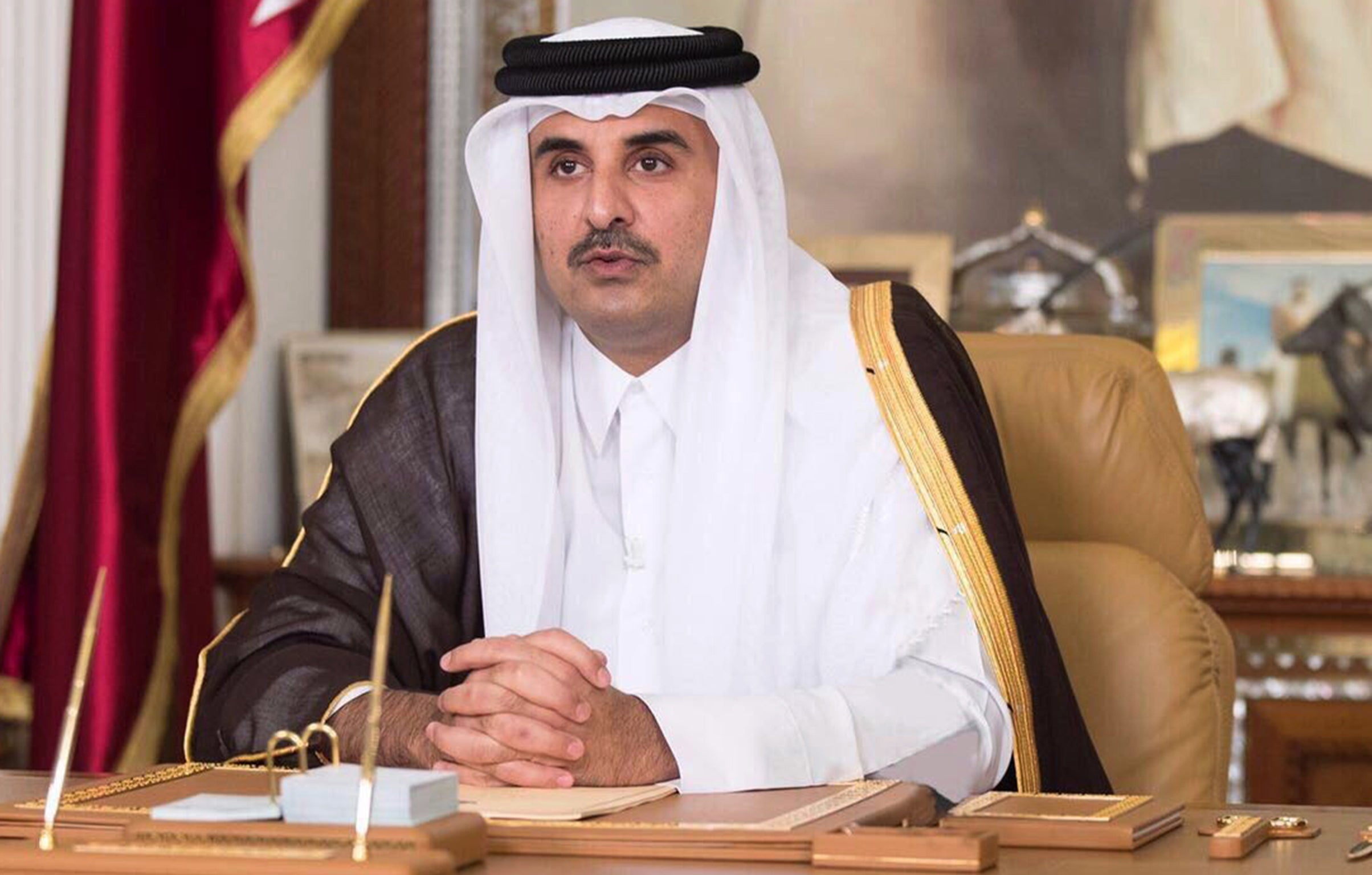Emir of Qatar calls for negotiations to ease Gulf boycott
'Any solution must respect the sovereignty and will of each state'

Your support helps us to tell the story
From reproductive rights to climate change to Big Tech, The Independent is on the ground when the story is developing. Whether it's investigating the financials of Elon Musk's pro-Trump PAC or producing our latest documentary, 'The A Word', which shines a light on the American women fighting for reproductive rights, we know how important it is to parse out the facts from the messaging.
At such a critical moment in US history, we need reporters on the ground. Your donation allows us to keep sending journalists to speak to both sides of the story.
The Independent is trusted by Americans across the entire political spectrum. And unlike many other quality news outlets, we choose not to lock Americans out of our reporting and analysis with paywalls. We believe quality journalism should be available to everyone, paid for by those who can afford it.
Your support makes all the difference.In his first speech since four Arab countries severed ties with his country, Qatar's emir called for dialogue to resolve a political crisis pitting his country against them.
A defiant Sheikh Tamim bin Hamad al-Thani said life was continuing as normal despite what he described as an unjust "siege" from Saudi Arabia, the United Arab Emirates, Bahrain and Egypt.
The countries cut ties and imposed sanctions on Qatar last month, accusing it of financing extremist groups and supporting terrorism, which the emir denied.
"Qatar is fighting terrorism relentlessly and without compromise, and the international community recognises this," Sheikh Tamim said in the televised speech.
He spoke hours after US Secretary of State Rex Tillerson said the United States was satisfied with Qatar's efforts to implement an agreement aimed at combating terror financing, and urged the four states to lift their "land blockade".
It also comes days before Turkish President Recep Tayyip Erdogan, who had supported Qatar in the crisis, was due to visit Qatar, Saudi Arabia and Kuwait to try to resolve the rift.
Earlier this month during a round of shuttle diplomacy, Tillerson signed a deal with Qatar to fight terrorism financing, part of efforts led by Kuwait to try to resolve the most serious rift in the Western-allied Gulf in decades.
An official comment from the four Arab countries had yet to be issued, but a Saudi royal court advisor described it as a piece of literary work written by a school student. "Had it been written by a student in middle school he would have flunked," Saud al-Qahtani wrote on his Twitter account.
Commentators hosted by the Saudi-owned al-Arabiya television also denounced the speech.
"This is a speech of obstinacy which sends messages that Qatar will not stop supporting terrorism," said Ali al-Naimi, editor of an online news website published in the UAE.
The crisis revolves around allegations that Qatar supports Islamist militant groups, including in Syria and Libya, and hosts members of the Muslim Brotherhood.
It began after a speech in late May by Sheikh Tamim appeared on the state news agency's website, which Doha said he had never made and indicated the website had been hacked from one of its neighbours, indicating the UAE.
The Washington Post, citing US intelligence officials, last week reported that the United Arab Emirates had arranged for Qatari government social media and news sites to be hacked in order to post the fiery but false quotes. The UAE denied any involvement.
Sheikh Tamim described the sanctions as a campaign that had been pre-planned against Qatar, calling it an act of aggression against Doha's foreign policy.
"Its planners planted statements to mislead public opinion and the countries of the world," he said.
Sheikh Tamim vowed to withstand the sanctions and said he had instructed the Qatari government that Qataris should become more self-reliant and called for the economy to be opened up to foreign investments.
"The time has come for us to spare the people from the political differences between the governments," he said, urging dialogue.
"Any solution must respect the sovereignty and will of each state," he added.
Join our commenting forum
Join thought-provoking conversations, follow other Independent readers and see their replies
Comments